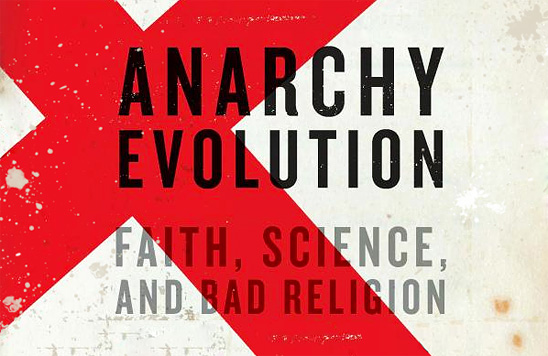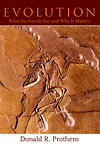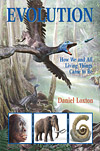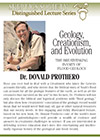In this week’s eSkeptic:

The Upside of Irrationality

Dan Ariely
Skeptics are all too aware of the irrationality of human nature and society, and turn to critical thinking to live more happily. But could there be benefits from the commonplace irrationalities of everyday life? Cognitive psychologist and behavioral economist Dan Ariely argues that there are.
This week on Skepticality, Swoopy talks with Professor Ariely (author of the New York Times bestseller Predictably Irrational) about his latest book, The Upside of Irrationality: The Unexpected Benefits of Defying Logic at Work and at Home. Find out how experiments illuminate the unexpected roles of irrational decision-making in daily life, and in shaping the world around us.
Our Next Lecture at Caltech
Why Everyone Else is a Hypocrite:
Evolution and the Modular Mind
with Dr. Robert Kurzban
Sunday, March 6, 2011 at 2 pm
Baxter Lecture Hall
WE’RE ALL HYPOCRITES. Why? Evolutionary psychologist Robert Kurzban shows us that the key to understanding our behavioral inconsistencies lies in understanding the mind’s design. The human mind consists of many specialized units designed by natural selection. While these modules sometimes work together seamlessly, they don’t always, resulting in impossibly contradictory beliefs, vacillations between patience and impulsiveness, violations of our supposed moral principles, and overinflated views of ourselves. This modular view of the mind undermines deeply held intuitions about ourselves. Modularity suggests that there is no “I.” Instead, each of us is a contentious “we” — a collection of discrete but interacting systems whose constant conflicts shape our interactions with one another and our experience of the world. Order the book on which this lecture is based from Amazon.com.
Can’t Make it to Our Lectures?
Get them on DVD!
Many of you would love to be able to make it to our lectures at Caltech, but cannot. And, many of you may not realize that we record almost all of our lectures and sell them on CD and DVD through our online store.
Ticket information
Tickets are first come first served at the door. Seating is limited. $8 for Skeptics Society members and the JPL/Caltech community, $10 for nonmembers. Your admission fee is a donation that pays for our lecture expenses.
About this week’s feature article
In this week’s eSkeptic, Bob Conrad reviews Anarchy Evolution: Faith, Science, and Bad Religion in a World Without God by Greg Graffin and Steve Olsen.
Bob Conrad has degrees in journalism, counseling and educational psychology, and he is currently a doctoral candidate in educational leadership at the University of Nevada, Reno. He has played drums in punk bands for more than two decades. He writes about science, the news media, and public relations at thegoodthebadthespin.com.

Science, Nihilism & Punk Rock
a book review by Bob Conrad
How punk rock evolved as a subculture is a study not free from controversy. Punk, forever ingrained ideologically as anti-mainstream has, since its inception, been granted credibility by the very mainstream it takes strides to loathe. The Sex Pistols, The Clash, and The Ramones, easily the top punk bands of their day, were all on major record labels and achieved relatively high levels of commercial success.
It is, therefore, common for youngsters—usually those filled with angst and rebellion from circumstance, familial fallout, or just normal adolescent restlessness—to get a taste of punk from mainstream culture only to then gravitate toward the aggressive sounds of punk rock also predominant in underground, subcultural circles where, adherents maintain, the more authentic punk rock is found.
For many who make the effort to follow or participate in the underground punk scene, there is available a punk-based intellectualism that is grounded in the anti-authoritarian and Do-It-Yourself ethos offered by punk rock outside of the mainstream of music—punk or otherwise. The music, the message, and the social outlook offered by punk rock can be energizing, attractive, and cause for long term investment for many of punk’s adherents, who play in bands and produce their own magazines, records, and CDs.
The punk-influenced paths of many have led to different callings: politics, activism, education, and, for Dr. Greg Graffin, lead singer of the band Bad Religion, academia. But there has never been a strong, concerted effort to publicly link punk rock and science in the way that Graffin does with his book, co-written by Steve Olsen, Anarchy Evolution: Faith, Science, and Bad Religion in a World Without God.
It’s about time. Graffin, reflecting on his growth as a person inspired by punk rock, details his parallel paths in life: one steeped in fronting Bad Religion, and the other in the academic world as a student, field worker, researcher, and ultimately, a part-time professor. Anarchy Evolution is a document, partly an autobiography, of Graffin’s interest in punk rock that also led to the pursuit of a doctorate in zoology from Cornell University.
His book is a treatise that details from a personal perspective Graffin’s interest in music and how it coincided with an exploration in the natural sciences. More than an autobiography, Anarchy Evolution is ultimately a subtle call to arms to embrace a rationalistic perspective on life, one that can be every bit as fulfilling as what religion and belief in a god are said to offer followers of religious faiths.
The point of Graffin’s book is noble. Seemingly more than ever, non-believers are marginalized in mainstream thought, though which is dominated by virulent—and, really, non-representative—left-right political motifs that are anti-intellectual and are characterized by rabid dogma, religious or otherwise. Even scientists, Graffin came to discover, hold religious outlooks on life despite such beliefs contradicting scientific thought. He explains:
The basic practice of science requires us to test all claims by the same criteria: observation, experimentation, and verification. If scientists are willing to rule out an entire domain of human life as exempt from their methods, how can they expect anyone to respect those methods? By trying to protect themselves from a public backlash against their overwhelmingly monist viewpoint, they undercut the very point they are trying to make.
As an evolutionist, Graffin makes the point that science can and, perhaps, must inform worldviews.
In today’s world, it is increasingly difficult for any institution—religions, universities, newspapers, manufacturers, or even music genres like punk rock—to cling too stubbornly to absolute principles of what ‘should be.’ The changes that dictate ‘what is’—including the creative combinations that come from vastly enhanced social networks—are occurring with blinding speed. It may seem impossible to keep up with all the changes, but I find it is difficult only if you insist on a static worldview. Once you embrace the dynamism inherent in an increasingly connected world, the changes are not as worrisome. And this dynamic social view fits perfectly with the naturalistic principles of observation, experimentation, and verification.
Because Graffin’s book links his dual interests in music and science, a common refrain throughout draws parallels between human cultures—in this case, the punk rock subculture—and natural evolutionary processes. Humans, possessed with an intellectual prowess not bestowed by evolution on other species, are arguably the chief shapers of their cultures along with the evolutionary processes that enabled them to give birth to modern civilization. Consequently, Graffin’s repeated comparisons between punk rock and evolution are both illustrative and occasionally unconvincing.
At one point, Graffin compares the circle pit, a feature of punk shows and concerts where audience members slam dance or “mosh” in large circles, to how social organisms evolve over time.
There are many unspoken rules in a slam pit to keep people from getting hurt. The most important is that punk fans are obliged to look out for one another. If someone falls, the nearby people in the pit are required to stop slamming and help that person get up. When girls enter the pit, they are not to be groped or assaulted. Kicking and punching are not cool, though the flailing of arms and legs sometimes can resemble kicking and punching. Punk culture has always been defiant and aggressive. But it also has been cooperative and egalitarian, at its best. Sometimes the rules of the pit are violated by jerks, drunks, and assholes. But almost everyone is aware of the rules. They emerged spontaneously from the culture of punk and from the social networks functioning in front of the stage. They are meant to establish social cohesion even as they allow individuals to express themselves as independent and autonomous agents.
Such a description is generous as to what occurs at punk shows and concerts. Arguably, the circle pit is an expression of aggression, primarily male-dominated, that functions as an outlet shaped by modern culture, one in which punk rock shows serve as a release for pent up aggression that cannot be expressed (legally) in other ways. Although Graffin makes a good case, I’m not completely convinced circle pits should be likened to evolutionary biology as Graffin does while not mentioning that many human constructs would have to follow in the same logic. Religious organizations would also have to fall into this same kind of thinking.
The quibbles with Anarchy Evolution are few, minor, and are more about what Graffin does not mention. Along with an occasional problematic correlation, Graffin’s take on such robust issues—the lack of acceptance of the naturalistic perspective in mainstream thought, as a main one—is bound to miss something. He passes by some significant opportunities, most notably what is problematic about religion. Although the title of the book and Graffin’s band name are about “bad religion,” he does not delve in depth with what it is that is bad about religion; in particular, how it is often used to justify myriad atrocities, violence, intolerance, and hatred toward fellow humans. Instead, Graffin provides statistics about religion’s role in society.
Countries with a high percentage of nonbelievers are among the freest, most stable, best-educated, and healthiest nations on earth…. The nations with the highest homicide rates tend to be more religious; those with the greatest levels of gender equality are least religious. The associations say nothing about whether atheism leads to positive societal indicators or the other way around. But the idea that atheists are somehow less moral, honest, or trustworthy has been disproven by study after study.
Rather than spend time on religion as a potentially destructive force, Graffin instead focuses on why non-religious worldviews are every bit as enriching as what religion purports to offer. As such, the intent of Anarchy Evolution is on the mark. Over and over Graffin’s point is clear
The natural world and the evolutionary processes that produced us are anarchic. There is no ultimate reason for our existence…. However, people make a big mistake if they conclude from anarchy of the physical world that life has no meaning. I draw just the opposite conclusion. The purposelessness of the natural world emphasizes the tremendous meaning inherent in the human world.
More to the point, Graffin’s perspective on human lives and the natural world, inescapably intertwined as they are, are a cause for thinking differently about modern culture.
Our decisions and actions reflect how we think about the world. Challenging authority and the dogmas that pervade our society does not make someone a crazed nihilist hell-bent on destruction. If done with an open mind, such challenges can contribute to informed social discourse and an open society. That’s ultimately why it’s so important to know about evolution: because it can change the way we think about ourselves and the world around us.
Indeed. The same argument is made for why so many gravitate toward punk rock in the first place and have for more than 30 years. The more intelligent among them will make the distinction between the stereotypical expressions of nihilism in the musical genre and larger reasons for questioning mainstream culture, even if grounded in defiance and anger. Graffin is one of the few to walk this path with so much clarity.
Skeptical perspectives on evolution…
-
 Evolution: What the Fossils Say & Why it Matters
Evolution: What the Fossils Say & Why it Matters
by Dr. Donald Prothero (hardcover $30)
-
 Evolution: How We and All Living Things Came to Be
Evolution: How We and All Living Things Came to Be
by Daniel Loxton (hardcover $18.95) -
Can something as complex and wondrous as the natural world be explained by a simple theory? The answer is yes, and now Evolution explains how in a way that makes it easy to understand. Based on acclaimed articles from Junior Skeptic (Skeptic magazine’s science insert for kids) this spectacularly illustrated introduction to the theory of evolution takes us from Charles Darwin to modern-day science. Along the way, Evolution answers common questions (and clears up misunderstandings) that sometimes confuse people about the history of life on Earth.
READ more and order the book.
-
 Geology, Creationism & Evolution
Geology, Creationism & Evolution
by Dr. Donald Prothero (CD $15.95 DVD $23.95) -
Have you ever had to deal with a Creationist who takes the Genesis accounts literally, and who insists that the biblical story of Noah’s flood can account for all the geologic features of the earth, as well as all the creatures that survived on the ark? In this lecture, Dr. Prothero discusses the biblical and logistical problems with “flood geology,” and shows how creationists’ conception of the geologic record would mean that we would never find coal, oil, gas or other natural resources that our society needs. In this engaging and richly illustrated lecture, Prothero — one of the world’s most respected paleontologists — will provide a wealth of evidence and answers to creationist challenges to science. If you are interstested in defending science education don’t miss this entertaining and intellectually rigorous history of the geological and fossil record.
READ more and order the lecture.
Check out our other lectures and books on the topic of evolution

NEW ON SKEPTICBLOG.ORG
Contrasts and Craziness:
Skeptics’ Geology Tour Ends at Creationist Museum
Michael Shermer shares some highlights and photographs from the recent Skeptics Society geology tour which included stops at the Mt. Palomar observatory, the Anza-Borrego badlands and surrounding areas, the Salton Sea, and the Joshua Tree National Park. All were spectacular sites for science, some of the most dramatic scenery to be found anywhere on the planet. If you like what you see, please consider joining us on a future trip by signing up for our advance notification list.










